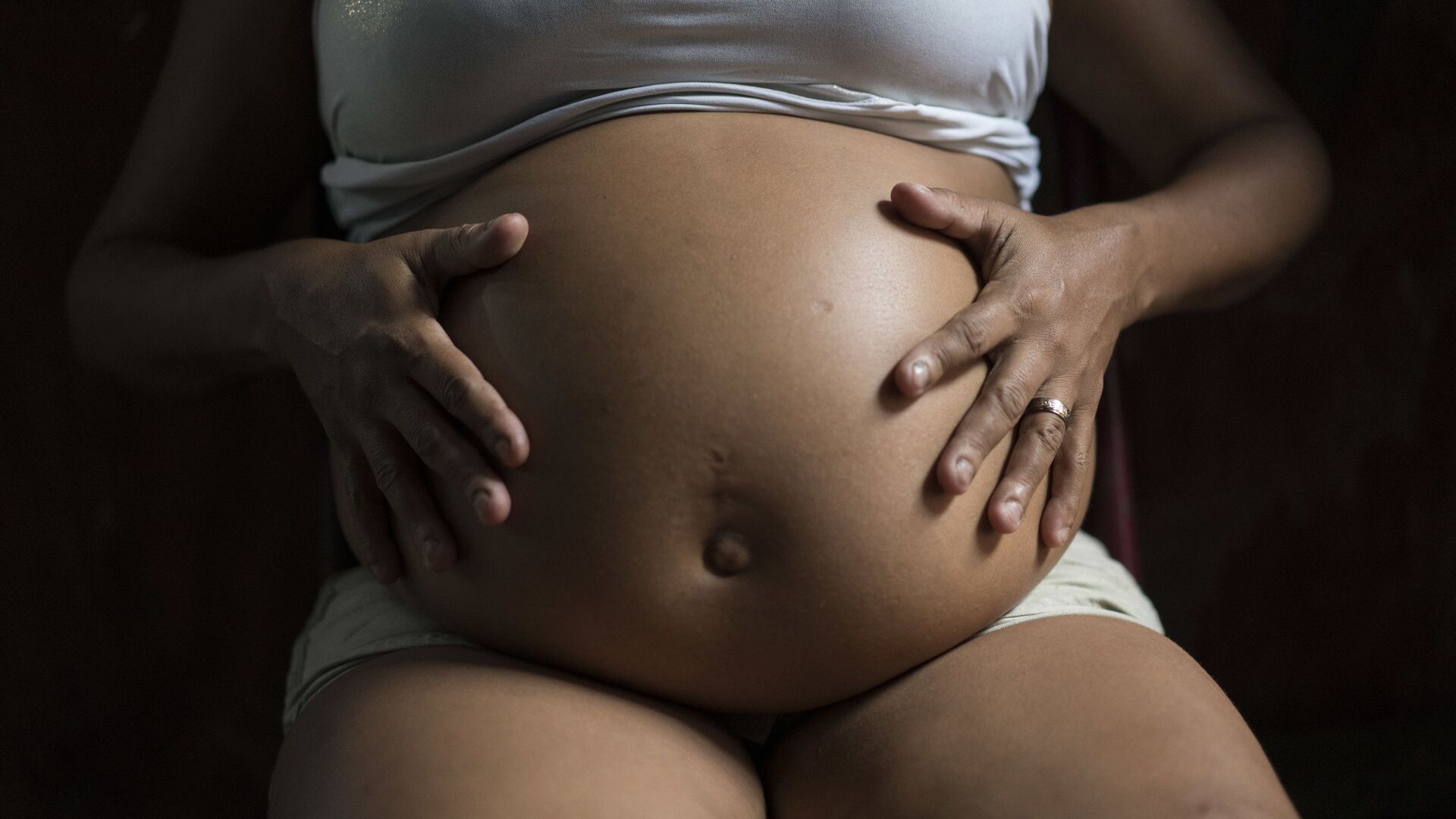With More US Trigger Laws Activating, One-Third of Childbearing-Age Women Have Lost Abortion Access

© AP Photo / Felipe Dana
Subscribe
Years ago, a host of conservative US states passed “trigger laws” that would take effect and immediately ban abortion there if the Supreme Court ever overturned Roe vs. Wade, the ruling that legalized abortion nationwide. The high court did just that in June, sending women scrambling for health care solutions.
Without further action, three more US states will ban most or all abortions inside their borders on Thursday, joining another 11 that have already done so; five more have laws temporarily blocked by judges, which could be removed at any time. At that point, roughly one-third of all US women of childbearing age - between the ages of 16 and 44 - will not be able to legally terminate their pregnancy early.
Tennessee’s law, certified by State Attorney General Herbert Slatery last month, will ban all abortions, including for pregnancies caused by rape or incest. The state already has an extremely strict law preventing pregnant people from ending their pregnancies more than six weeks after conception, when a wrongly-named “fetal heartbeat” can theoretically be detected. At such an early period, most people don’t even know they’re pregnant yet.
In Texas, a slew of anti-abortion laws have been passed in recent years, severely restricting abortion access even before the US Supreme Court handed down the Dobbs vs. Jackson decision in June. That ruling set in motion both the activation of a trigger law as well as the reactivation of a 1926 ban on abortion that had been shut down by the Supreme Court’s 1973 decision in Roe vs. Wade, which legalized abortion nationwide and which the 2022 Dobbs decision overturned.
Idaho’s trigger law was only passed in 2020, but it was also set in motion by the June ruling. However, a federal judge in Idaho has signaled he may temporarily enjoin the law, blocking it from taking effect, following a lawsuit by the US Department of Justice. According to NBC News, the judge could do so due to questions about a conflict between federal and state law, not because he intends to challenge the legality of the Dobbs decision.
In other states, judges have temporarily blocked their trigger laws or pre-Roe abortion bans from taking effect, although most have since been reversed and abortions are now banned there. In Michigan last week, the abortion ban dating to 1931 was blocked by a judge until after the November 2022 elections, when a constitutional amendment on permitting abortion before the fetus reaches viability is set to appear on the ballot.
Indiana was the first state after Dobbs to pass an abortion ban, and Kansas held a referendum on the question earlier this month, returning a surprising pro-abortion result. In addition to those states banning abortion, several more have seen more restrictive laws take effect, which had previously been blocked by judges because they violated Roe’s rules about how early in the pregnancy abortion could be regulated.
Aside from the roughly 26 states banning or severely restricting abortion, another 16 US states where Democratic governments prevail have taken steps to strengthen and protect access to abortions, including compensating for the influx of people traveling there from states with bans.



